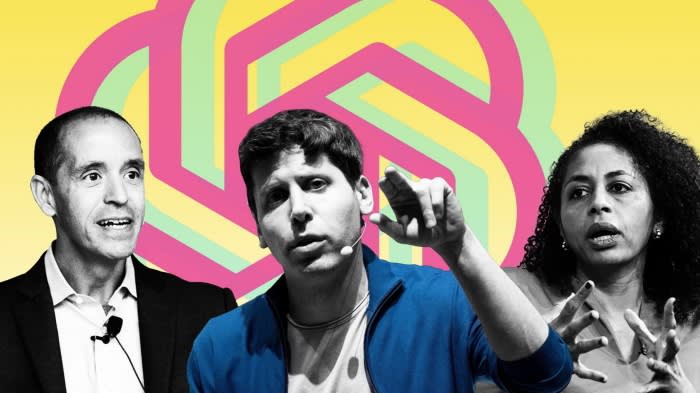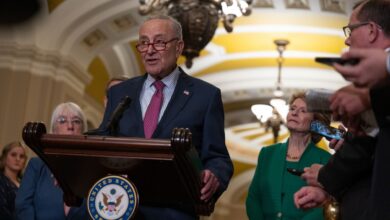Op-Ed | Harnessing AI and tech: Empowering New York City’s economic renaissance

We are in the midst of a tech talent boom across the five boroughs. According to a recent study, more tech workers relocated to New York than any other city in 2023. New York City saw a 3.6 percent net gain in tech talent last year, with 15 percent of all people who relocated for a tech job coming here.
Data like this show why New York City is in a unique position to lead the charge in the AI revolution. The best and brightest want to work here, and New York’s business leaders plan to meet these workers with their investments: a new report from Tech:NYC and Accenture found that 99% of C-suite executives plan to increase their spending in generative AI, and 92% plan to recruit new AI talent in the next three years.
But we shouldn’t rest on these positive indicators. If we want to become a leading AI hub, we need to embrace a thoughtful and intentional approach to deploying this technology, which will ultimately create more economic value than a posture that is too aggressive or too cautious. This means implementing a people-centric approach to embracing AI that focuses on augmenting work with generative AI — not necessarily replacing it — while training local New Yorkers for the high-growth jobs this technology will create.
We understand this might be easier said than done when you consider the massive potential AI has for the industries that call New York home. From finance to healthcare, entertainment to transportation, AI is driving efficiency, enhancing productivity, and fueling innovation at an unprecedented pace.
Take, for example, the financial industry, which serves as the lifeblood of our city’s economy. With AI-powered algorithms and machine learning models, financial institutions can analyze vast troves of data in real-time, identify patterns, and make informed decisions with lightning speed and precision. This not only enables them to stay ahead of market trends but also ensures greater transparency, accountability, and security for investors and consumers alike.
Similarly, in healthcare, AI is revolutionizing the way we diagnose, treat, and manage diseases, saving lives and improving outcomes in the process. By leveraging AI-powered diagnostics, predictive analytics, and personalized medicine, healthcare providers can deliver more tailored and effective treatments, leading to better patient care and reduced healthcare costs—a win-win for all.
The possibilities for improved efficiencies and productivity are exciting to say the least, and represent a generational opportunity for growth. But instead of rushing toward this growth by any means necessary, Tech:NYC and Accenture found that taking a responsible, people-centric approach to AI focused on deliberate effort that places people and innovation at the center could lead to $320 billion in economic value for New York over the next 15 years — far greater than an approach than an aggressive approach, which showed a greater short-term productivity boost at the cost of lower long-term benefits.
Realizing this vision requires more than just investment in technology — it requires a concerted effort to cultivate talent, foster collaboration, and build an inclusive tech ecosystem that empowers all New Yorkers to thrive in the digital age. We need to bring together industry leaders, policymakers, and community stakeholders to craft policies and undertake actions that promote innovation, diversity, and equity in the tech sector.
In 2021, the Queens Chamber, with help from Tech:NYC and industry leaders including Amazon, Google and Meta launched the Queens Tech Council, to focus on building an economy that embraces innovation and promotes tech adoption. Since then, we’ve launched tech incubators in the Rockaways, Jamaica, Long Island City and Jackson Heights to ensure that every corner of the borough can benefit. And now with the launch of the Queens Innovation Foundation, we are set to raise millions to support these 15 tech startups who are 70% MWBE owned and operated. Initiatives like the Queens Tech Council show how other outer borough communities can build infrastructure now to ensure that AI’s economic impact is felt by people in New York’s most diverse neighborhoods, not just in the traditional business centers in Manhattan.
It’s equally important that we develop a constant feedback loop between local tech and business leaders, policymakers and educators to understand the evolving needs across workforce development, regulation and business growth. We must understand that however impactful AI could be for our city, the programs and policies we deploy to take advantage of this technology must evolve alongside it.
Together, we can harness the transformative power of AI and technology to build a brighter, more prosperous future for all New Yorkers. By embracing innovation, fostering collaboration, and investing in our people and communities, we can ensure that New York City remains at the forefront of the global economy for generations to come.
Grech is the President and CEO of the Queens Chamber of Commerce. Velázquez is the Vice President of Policy at Tech:NYC.



